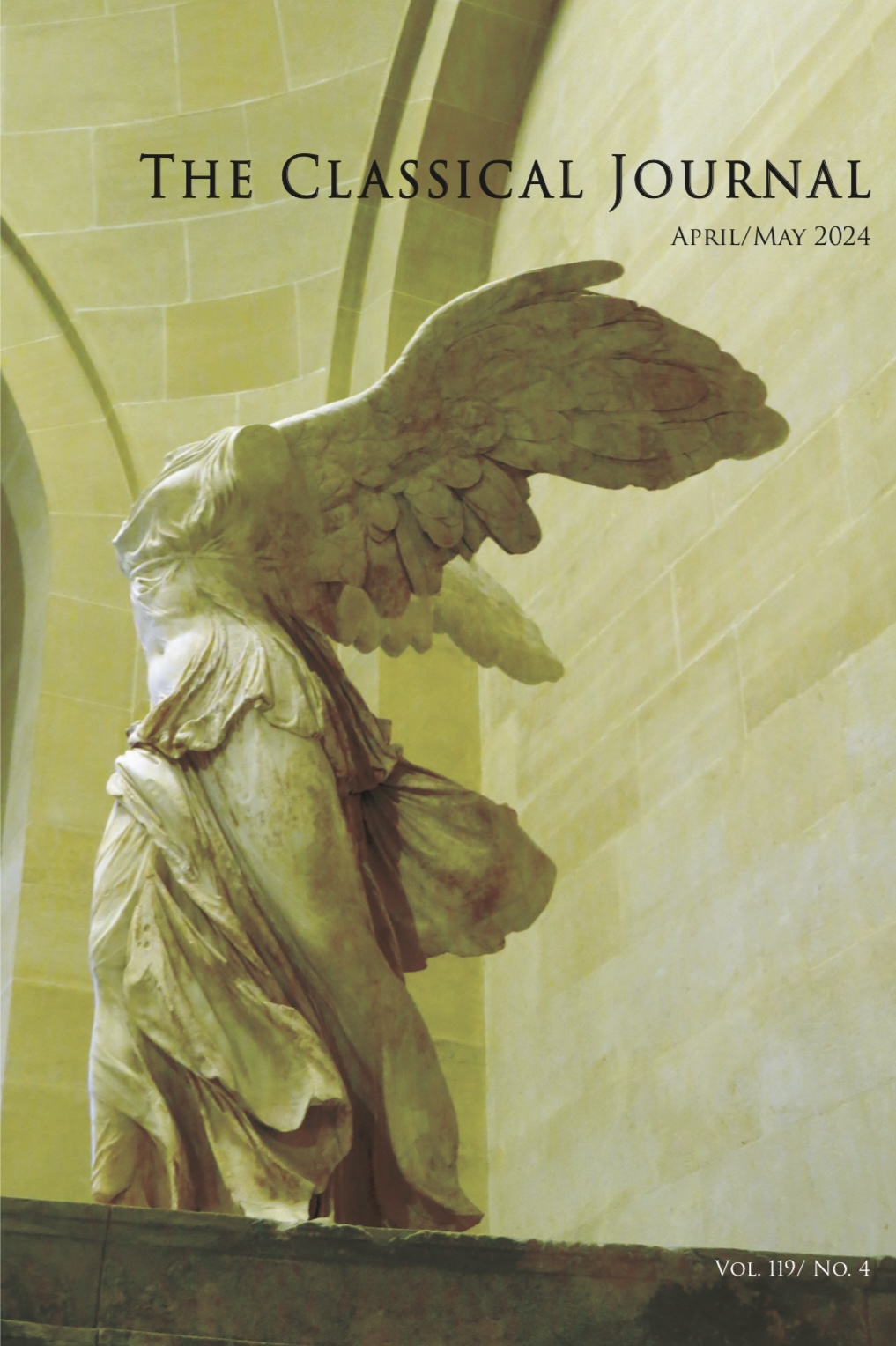The following articles are contained in CJ
108.1
Abstracts of Articles
Naming Cato(s)
This study traces the epithets and agnomina regularly assigned to the elder Cato
in the late Republican and early imperial sources, in part to distinguish him
from his illustrious great-grandson. The elder Cato's most frequently used "names"
(Sapiens, Senex, Censorius) structure his position as a moral exemplar in distinct ways
and develop in relation to the career and emerging mythology of the younger Cato, whose
"names" (Praetorius and Uticensis) are also addressed. The elder Cato's names
(much more than those of Cato Uticensis) emphasize the present's continuity with
the Republican past.
Arma Virumque
The opening phrase of the Aeneid anticipates a pattern of relationship in the
poem between outside and inside. Epic arms look outward to the gods, fate and
society, inward to the man himself, his unique history, his inner life.
At the same time alien and complementary to the warrior, arms elude his full
control, with an uncanny power that frustrates intention. Analysis of five
interrelated passages suggests that arms in the Aeneid are the leading edge of
external forces that continually impinge upon the man's inner will and purposes.
Statues, Celibates and Goddesses in Ovid's Metamorphoses 10 and Euripides' Hippolytus
Ovid's story of Pygmalion contains allusions to the diatribe against women in Euripides'
Hippolytus, particularly Hippolytus' comparison of a wife to a statue. These allusions
underscore shared and unusual attributes of Pygmalion and Hippolytus, the only obvious
examples of adult male celibacy in Graeco-Roman literature. Although Orpheus' misogyny
distorts the story, Pygmalion and his family mimic the narrative of Euripides' play.
Pygmalion acts as a second Hippolytus while Myrrha is a doublet of Phaedra, similarly
tortured with incestuous lust because of her male relative's insult to Venus. Adonis'
death, promised by Artemis at the end of Hippolytus, punishes Venus for her cruel treatment
of both Phaedra and Myrrha.
Forum: A Radical Approach to the Large Undergraduate Lecture Course
A description of a set of structural innovations designed to encourage students to attend
class, pay attention and ask questions, and to teach basic writing and public speaking
skills, within the practical constraints of a large introductory-level lecture course
in classical civilization.


